#Juano Hernandez
Explore tagged Tumblr posts
Text




Juano Hernandez and John Garfield in Michael Curtiz’s THE BREAKING POINT (1950)
49 notes
·
View notes
Text
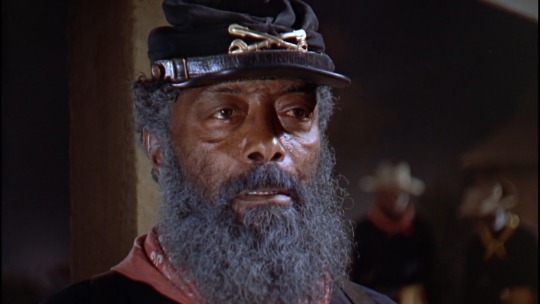
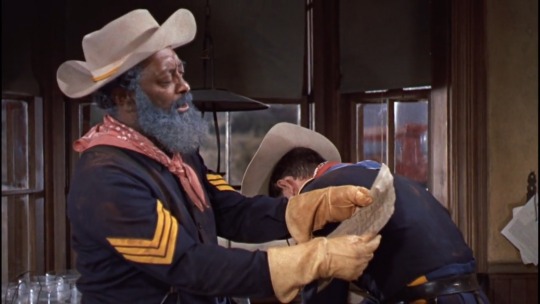
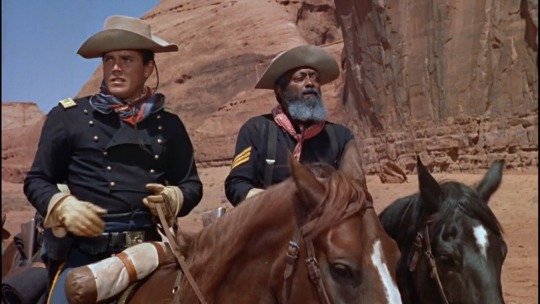
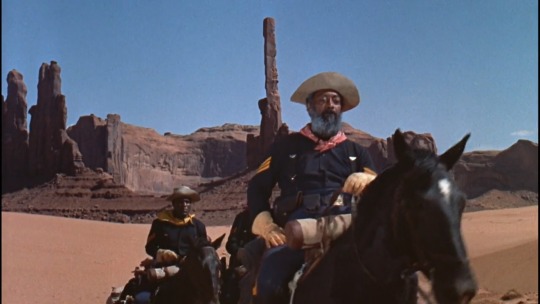
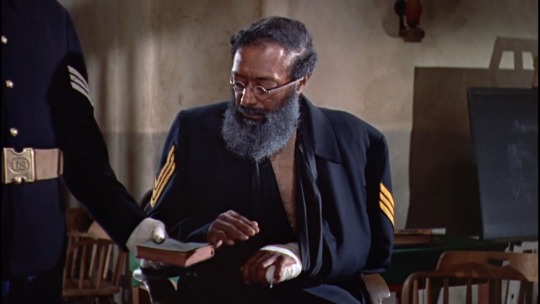
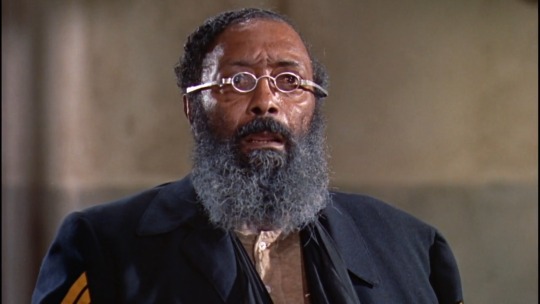
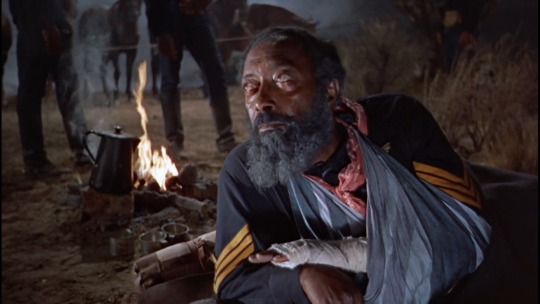
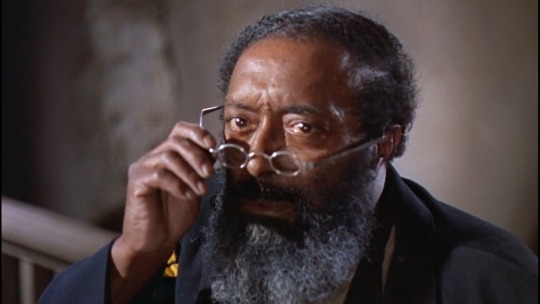
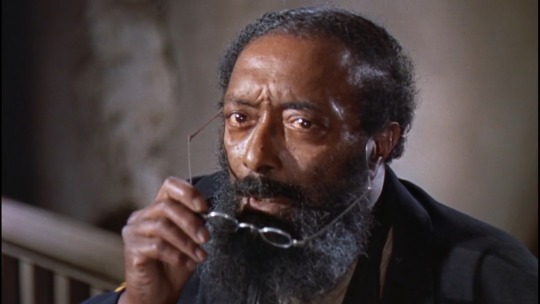
Juano Hernandez in Sergeant Rutledge (1960)
#juano hernandez#sergeant rutledge#sgt rutledge#1960#john ford#jeffrey hunter#60s movies#1960s film#western#actor posts
1 note
·
View note
Photo
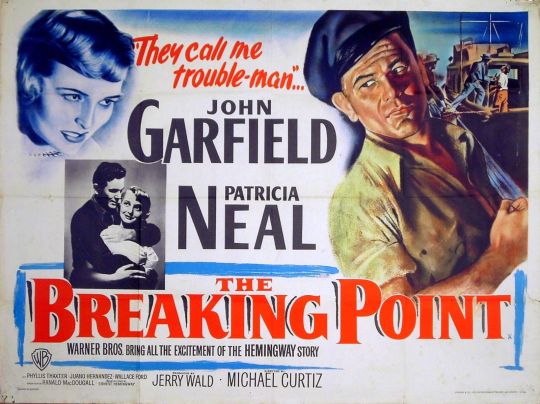


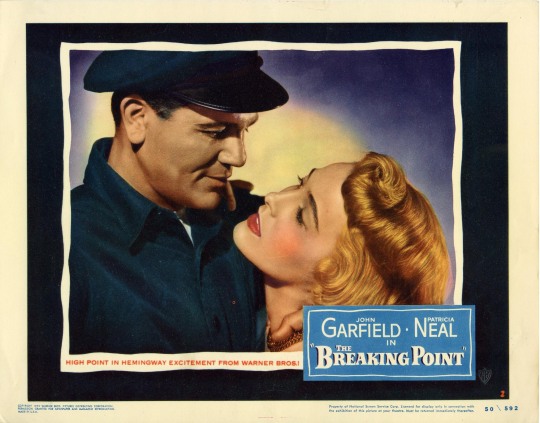


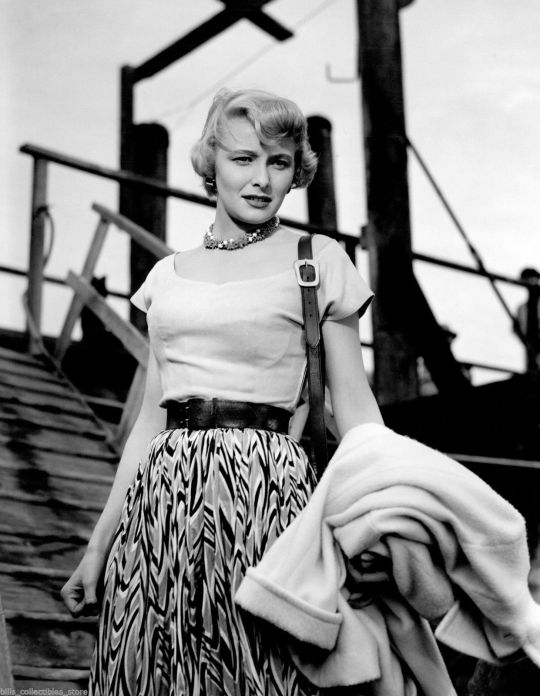

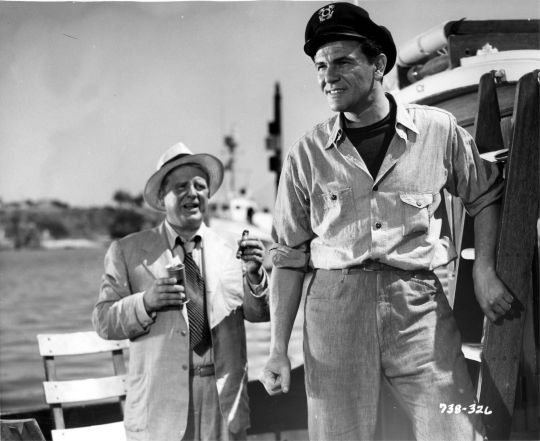
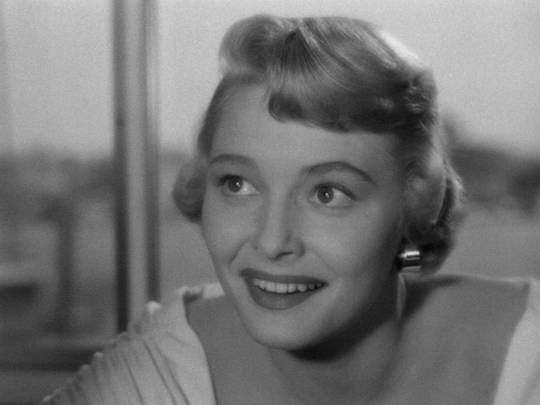
The Breaking Point (1950) Michael Curtiz
January 15th 2023
#the breaking point#1950#michael curtiz#john garfield#patricia neal#phyllis thaxter#wallace ford#juano hernandez#sherry jackson#donna jo boyce#ernest hemingway#to have and have not
14 notes
·
View notes
Text
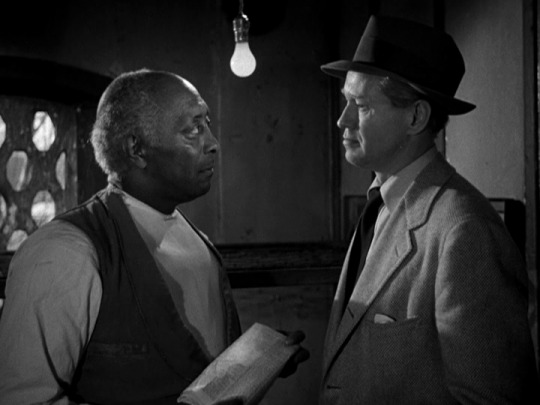
The Last Movie I Watched...
Intruder in the Dust (1949, Dir.: Clarence Brown)
0 notes
Photo
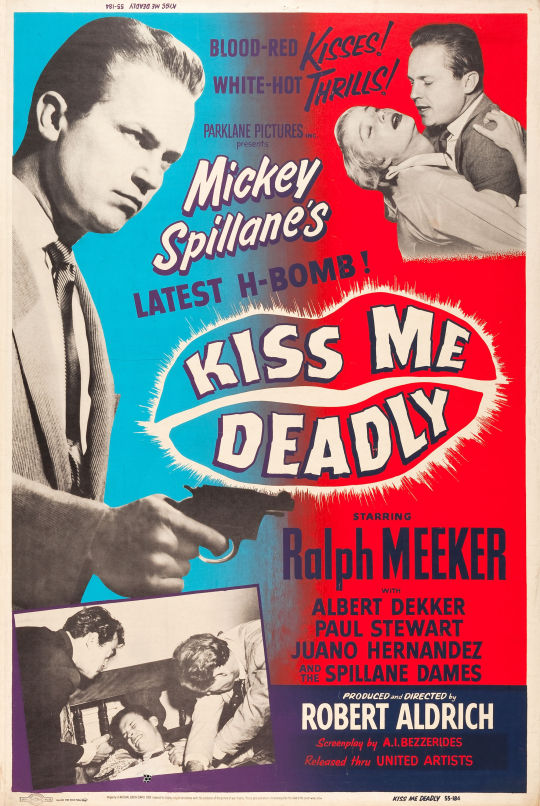
1 note
·
View note
Text
youtube
KISS ME DEADLY (1955) Grade: B-
I'm not sure, but I'm going to guess this movie shocked the audience when it came out. The plot felt ahead of its time. The ending was good, I'm trying to think of earlier films like this with a similar surprise ending.
#1955#B#Kiss Me Deadly#Crime Films#Robert Aldrich#Film Noir#Black and White#Mystery#Hitchhiker#Ralph Meeker#Albert Dekker#Juano Hernandez#Paul Stewart#Wesley Addy#Mort Marshall#Marjorie Bennett#Fortunio Bonanova#Strother Martin#Jack Elam#Detective#Youtube
1 note
·
View note
Text
THE BREAKING POINT:
Honest fisherman
Forced into crime by debt
Puts strain on marriage
youtube
#the breaking point#random richards#poem#haiku#poetry#haiku poem#poets on tumblr#haiku poetry#haiku form#criterion collection#john garfield#patricia neal#phyllis thaxter#juano Hernandez#wallace ford#michael curtiz#ernest hemingway#to have and have not#ranald macdougall#max steiner#Youtube
1 note
·
View note
Text
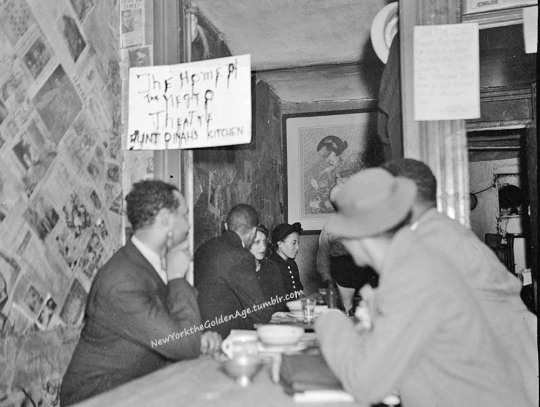
Taken by a WPA photographer between 1935 and 1941, this picture shows diners at Aunt Dinah's Kitchen in Harlem. Established by Richard Huey, an actor in the Harlem theater scene, it was located in the basement of 172 West 135th Street, next to the YMCA. As the sign indicates, it was the go-to dining spot for Harlem's theater folk in the 1930s and 1940s. It also hosted one-act plays and forums and supported actors who needed a free meal.
From 1933 until Huey's death in 1948, the restaurant's “down-home grub” drew such luminaries as Rose McClendon, Ethel Waters, Langston Hughes, Carl Van Vechten, Juano Hernandez, Richard B. Harrison, Olive Borden, Georgette Harvey, Countee Cullen, Claude McKay, Frederick O’Neal, Count Basie, and others to his “hangout for hams.”
The family-style dining room attracted both locals and theater stars. Inspired by his roots in Monroe, Louisiana, Huey lined the walls with newspaper as a tribute to the restaurant walls back home which used the papers "partly to keep the wind out and partly for decoration."
Photo: NYC Dep't of Records Facebook
#vintage New York#1930s#vintage Harlem#Aunt Dinah's Kitchen#Harlem restaurant#Richard Huey#hangout#Harlem hangout#vintage NYC#Harlem Renaissance#actors
50 notes
·
View notes
Text
KISS ME DEADLY (1955) – Episode 192 – Decades of Horror: The Classic Era
“Look, Mike, I like you. I like the way you handle yourself. You seem like a reasonable man. Why don’t we make a deal? What’s it worth to you to drag your considerable talents back to the gutter you crawled out of?” Wow. Where would you want him to drag himself if you didn’t like him? Join this episode’s Grue-Crew – Daphne Monary-Ernsdorff, Chad Hunt, Doc Rotten, and Jeff Mohr along with guest Bill Mulligan – as they take a deep, deep dive into Kiss Me Deadly (1955), a horror-adjacent, science-fiction film noir.
Decades of Horror: The Classic Era Episode 192 – Kiss Me Deadly (1955)
Join the Crew on the Gruesome Magazine YouTube channel! Subscribe today! And click the alert to get notified of new content! https://youtube.com/gruesomemagazine
ANNOUNCEMENT Decades of Horror The Classic Era is partnering with THE CLASSIC SCI-FI MOVIE CHANNEL, THE CLASSIC HORROR MOVIE CHANNEL, and WICKED HORROR TV CHANNEL Which all now include video episodes of The Classic Era! Available on Roku, AppleTV, Amazon FireTV, AndroidTV, Online Website. Across All OTT platforms, as well as mobile, tablet, and desktop. https://classicscifichannel.com/; https://classichorrorchannel.com/; https://wickedhorrortv.com/
Synopsis: A doomed female hitchhiker pulls Mike Hammer into a deadly whirlpool of intrigue, revolving around a mysterious “great whatsit.”
Directed by: Robert Aldrich
Writing Credits: A.I. Bezzerides (screenplay); Mickey Spillane (novel)
Cinematography by: Ernest Laszlo (photography by)
Produced by: Robert Aldrich (producer); Victor Saville (executive producer) (uncredited)
Selected Cast:
Ralph Meeker as Mike Hammer
Maxine Cooper as Velda Wickman
Cloris Leachman as Christina Bailey
Gaby Rodgers as Lily Carver
Wesley Addy as Lt. Pat Murphy
Albert Dekker as Dr. G.E. Soberin
Paul Stewart as Carl Evello
Nick Dennis as Nick Va Va Voom
Jack Elam as Charlie Max
Jack Lambert as Sugar Smallhouse
Mort Marshall as Ray Diker
Marian Carr as Friday (as Marion Carr)
Juano Hernandez as Eddie Yeager
Marjorie Bennett as Manager
Fortunio Bonanova as Carmen Trivago
Strother Martin as Harvey Wallace
Mady Comfort as Nightclub Singer (as Madi Comfort)
James McCallion as Horace
Jesslyn Fax as Horace’s Wife
Robert Cornthwaite as FBI Agent
James Seay as FBI Agent
Silvio Minciotti as Mover
Paul Richards as Attacker
Percy Helton as Doc Kennedy
Leigh Snowden as Cheesecake
Jerry Zinneman as Sammy
Kitty White as Club Vocalist
Ben Morris as Radio Announcer
Sam Balter as Radio Announcer (voice)
Joe Hernandez as Radio Announcer (voice)
Bing Russell as Police Detective (uncredited)
Charles Lane as Doctor (uncredited)
Eddie Beal as Sideman (uncredited)
Leonard Bremen as Man in Parked Car (uncredited)
Yvonne Doughty as Receptionist (uncredited)
John George as Popcorn Vendor (uncredited)
Art Loggins as Bartender (uncredited)
Mara McAfee as Nurse (uncredited)
Leonard Mudie as Athletic Club Clerk (uncredited)
Kiss Me Deadly (1955) might not be a certifiable horror movie, but this extraordinary film noir is certainly horror adjacent. Director Robert Aldrich, cinematographer Ernest Laszlo, and screenplay writer A. I. Bezzerides do themselves proud in this adaptation of the Mickey Spillane novel. Ralph Meeker, as antihero Mike Hammer, is supported by superb performances from a long list of recognizable character actors. Film noir — even horror adjacent science fiction film noir — is not for everyone, and indeed, the Classic Era Grue Crew are divided. Either way, Kiss Me Deadly must be seen, and there is much for the crew to discuss. Where else will you find a search for a “great whatsit?”
At the time of this writing, Kiss Me Deadly (1955) is available to stream from the Classic Sci-Fi Movie Channel and on physical media as a Blu-ray disc from Criterion.
Gruesome Magazine’s Decades of Horror: The Classic Era records a new episode every two weeks. Next in their very flexible schedule – this one chosen by Daphne – is Earth vs. the Spider (1958), aka The Spider! Yes, it’s time for a B-I-G movie, as in Bert I. Gordon! The Grue Crew can’t wait!
Please let them know how they’re doing! They want to hear from you – the coolest, grooviest fans: leave them a message or leave a comment on the Gruesome Magazine YouTube channel, the site, or email the Decades of Horror: The Classic Era podcast hosts at [email protected]
To each of you from each of them, “Thank you so much for watching and listening!”
Check out this episode!
0 notes
Text




Birthday remembrance - Juano Hernandez #botd 🎭
28 notes
·
View notes
Text
Kiss Me Deadly



In her film debut, Cloris Leachman says, “I could tolerate flabby muscles in a man, if it’d make him more friendly.” The film that follows is neither flabby nor friendly, but it’s one of the great film noirs with one of the bleakest endings in the genre. Contemporary critics didn’t care for Robert Aldrich’s KISS ME DEADLY (1955, Apple+), but it has grown in reputation over the years, particularly with Francois Truffaut and Jean-Luc Godard calling it the single greatest influence on the Nouvelle Vague. Ralph Meeker’s Mike Hammer is far from a crusading private eye at first. He’s lost his gun and his license and concentrates on setting up honey traps with his secretary/lover Velda (the wonderful Maxine Cooper) so he can blackmail cheating husbands. Then he picks up a near-naked hitchhiker (Leachman) who’s escaped from a mental hospital to which she was committed because she knows about “the great whatsit,” one of the best MacGuffin’s in film history. When she’s murdered, Hammer figures whatever she knew must be worth money. Then one of his few friends is murdered, and it gets personal. The corruption he encounters is everywhere, from the government to the kiss of a beautiful blonde. And Hammer is a part of it. Meeker does a marvelous job in the role, changing masks depending on whom he’s trying to manipulate and betraying a bit of glee in beating up attackers and recalcitrant witnesses. Aldrich and A.I. Bezzerides wrote some great punchy dialog for the film (and appropriated the phrase “the great whatsit” from 1932’s THE MOST DANGEROUS GAME), and Ernest Laslo createed some eerie visuals, shooting through objects and casting shadows to create an off-kilter, dangerous world. There’s a lot of good work in the cast, but it’s hard to believe Aldrich couldn’t find a better actress than Gaby Rogers to play the blonde femme fatale. Her tinny line readings sound like a bad imitation of Judy Holliday, or maybe Lina Lamont without the humor. The rest of the cast includes Albert Dekker as a crooked doctor, Paul Stewart as a mob leader, Juano Hernandez as a boxing trainer Wesley Addy as a police lieutenant who may be in love with Hammer, Marjorie Bennett as a landlady (one line, but she delivers it with aplomb), Percy Helton as a coroner, Fortunio Bonanova as an opera singer, and Jack Elam and Jack Lambert as two dim-witted hired thugs.
0 notes
Text
Assistir Filme Êxito Fugaz Online fácil
Assistir Filme Êxito Fugaz Online Fácil é só aqui: https://filmesonlinefacil.com/filme/exito-fugaz/
Êxito Fugaz - Filmes Online Fácil
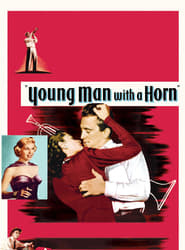
Nos anos 30, o órfão semi abandonado Rick Martin (Kirk Douglas) é criado por sua irmã, sem qualquer cuidado ou amor. Um dia, ele ouve uma canção em um templo e como tem ouvido absoluto, é capaz de reproduzi-la no piano. Quando ele vê um trompete em uma casa de penhores, ele se apaixona pelo instrumento e trabalha para arranjar o dinheiro necessário para comprá-lo. Então ele se encontra com o lendário trompetista Art Hazzard (Juano Hernandez) e Rick se torna seu protegido. Art ensina como tocar trompete e Rick se torna um trompetista bem sucedido mas rebelde. Ao longo de sua carreira, os amigos de Rick Martin são Art Hazzard, o pianista Willie 'Smoke' Willoughby (Hoagy Carmichael) e a cantora Jo Jordan (Doris Day) e acaba se tornando a estrela de sua orquestra. Quando Jo apresenta sua amiga Amy North (Lauren Bacall), que é um estudante de medicina que gosta de experimentar novas sensações, Rick acaba se apaixona por ela, bem no início de sua queda.
0 notes
Photo
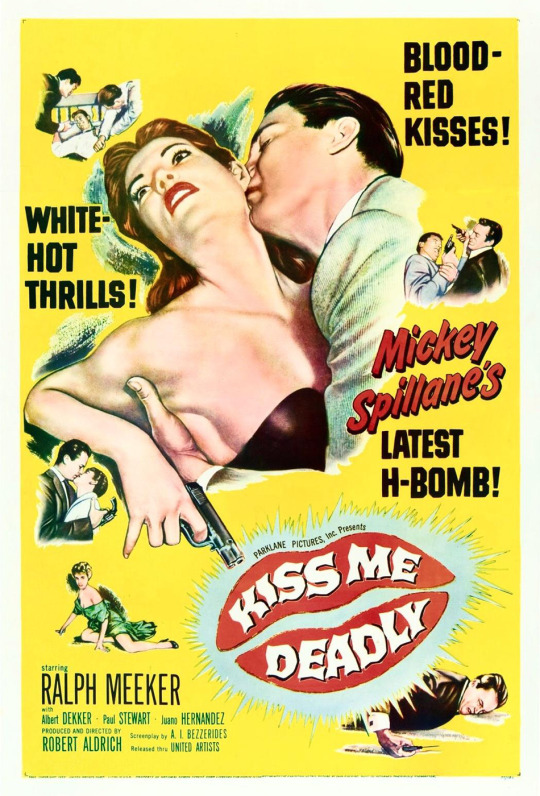
#kiss me deadly#film noir#movies#1955#1950s#ralph meeker#albert dekker#paul stewart#juano hernandez#gaby rodgers#robert aldrich#mickey spillane#mike hammer#movie posters
16 notes
·
View notes
Text
shining star: juano hernández - an analysis
“Hernandez is the ‘new Negro’ in our movies. No longer do we have janitor and shoe shine boys. Now, we have a dignified, intelligent black man.” – director Michael Curtiz, talking about Juano Hernández
Only, he wasn’t black. From José Ferrer to Benicio del Toro, over the years Puerto Rican actors have helped carve out an important space for Latino stars in Hollywood, with Ferrer holding the distinction of being the first Hispanic actor to win an Academy Award for 1950’s Cyrano de Bergerac. But few may know that one of the most influential and critically acclaimed Puerto Rican actors in the history of Hollywood was actually a man of colour, Juano Hernández, whose career in the pictures predated that of Ferrer by over twenty years. Largely forgotten even in his native Puerto Rico, Hernández is considered by film historians to be a trailblazing actor who revolutionized the representation of black characters on the big screen. Hernández was an acting pioneer who paved the way for many of today’s Afro-Latino actors. On radio, Hernández had a career akin to Latino actors in Hollywood cinema, meaning that he played a variety of ethnic roles, usually sidekicks in serials. On stage and screen, however, skin colour restricted Hernández to non-Latino black roles. A true Cancer, Hernández embodied a pride and an eloquence that made it hard to take your eyes off him, from the crinkle of his brow to how he moved with rough-hewn and quiet, dignified grace. But paradoxically, it was because of this quiet Cancerian understatement, class, and dignity that he was overlooked; he wasn’t flashy or a woman noted for her looks, so he wasn’t spoken about fervently or exalted like marquee black star Dorothy Dandridge. His story is so fascinating that a biopic would be worthwhile.
Juano was a stage actor who went on to have a short but meaningful career in 1950s and 1960s Hollywood cinema. Juano gave many indelible performances. — Famed for his big, sympathetic eyes, commanding voice, and incomparable stage presence, Hernández’s eventual mainstream success came with the film Intruder in the Dust, which earned him a Golden Globe nomination. Throughout his 50-year career, Juano racked up a total of 36 TV and film credits, two nominations and garnered the respect of actors both past and present. Though he “starred” (played lead or major supporting roles) in them, the films didn’t turn Juano Hernández into a bankable movie star. He also didn’t get a glamorous “star treatment” in movie magazines or when photographed in films. While non-stereotypical opportunities in Hollywood were few, it’s important to remember that prospects for black actors in Latin American cinema were limited too. Instead, Hernández became an admired and respected character actor whose performances of dignified black masculinity paved the way for younger black actors who achieved full stardom, most notably Sidney Poitier. Before Hernández, the most popular black performers in Hollywood were comedians Stepin Fetchit and Eddie “Rochester” Anderson. Their performances could be sources of embarrassment, but they turned them into box-office attractions. Hernández’s dignified approach, on the other hand, earned him the respect of critics and peers. Juano Hernández’s work on film, television, radio and stage remains criminally largely unknown and awaits a critical reappraisal that is informed by scholarly work on race and gender in transnational media.
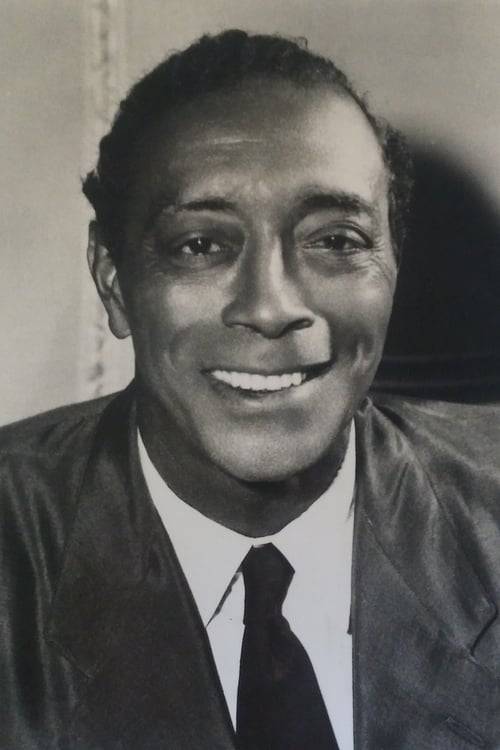
Juano Hernández, according to astrotheme, was a Cancer sun and Scorpio moon (the moon is speculative). He was born Juan G. Hernández in Puerto Rico. Raised in Brazil, Hernández arrived in the United States as a teenager. Details about his early years in the US are unclear. First he became a sailor, then he moved to Rio de Janeiro to work as a carnival performer in 1922. He was also an amateur boxer in the Caribbean nicknamed Kid Curley before joining the vaudeville circuit. By the late 1920s, he had worked his way up to parts in all-black Broadway revues, including Blackbirds, a show that briefly took him to Paris in 1929. He read Shakespeare as much as he could to improve his diction, afraid that his strong Spanish accent would prevent him from getting a good role. But it didn't. Back in the US, Hernández became known for his work on radio. His big break came in early 1933 with John Henry, a CBS series about a mythical dark-skinned strongman from the Mississippi country. Hernández starred, co-scripted, composed the theme song and directed the atmospheric “Negro folk songs.” In the 1930s and 40s, Hernandez became one of the few black radio performers whose career wasn’t restricted to playing demeaning roles, though at least once he faced criticism for accepting an “Uncle Tom role” rejected by another actor. He made his screen debut in Oscar Micheaux’s The Girl from Chicago (1932), a low-budget movie for black audiences with an all-black cast. Hernandez played Cuban gangster Gomez, his only black Latino role in films. Hernandez didn’t return to movies until Intruder in the Dust. Despite an acclaimed introduction to studio films, Juano Hernandez didn’t make many movies during 1950s and 60s. On May 1950, after filming The Breaking Point, the self-taught actor received an honorary doctorate from the University of Puerto Rico and accepted an offer to teach at its Drama and English departments. After spending most of his life abroad, Hernandez moved back to the island and remained based there during his last two decades.
Towards the end of his life, Hernández returned to Puerto Rico and began writing a screenplay based on the story of Sixto Escobar, the island's first boxing champion. Sadly, he did not sell the film to any studio The San Juan, Puerto Rico, native passed away from a cerebral hemorrhage in July of 1970, two days before his birthday, leaving behind an incredible film legacy that broke barriers within the entertainment industry. He was 74. In 2017, Hernández was posthumously honored at Paseo de la Fama (The Walk of Fame) in San Juan.
Next, I’ll switch gears and cover a very famous and iconic entertainer: Gemini Jospehine Baker.
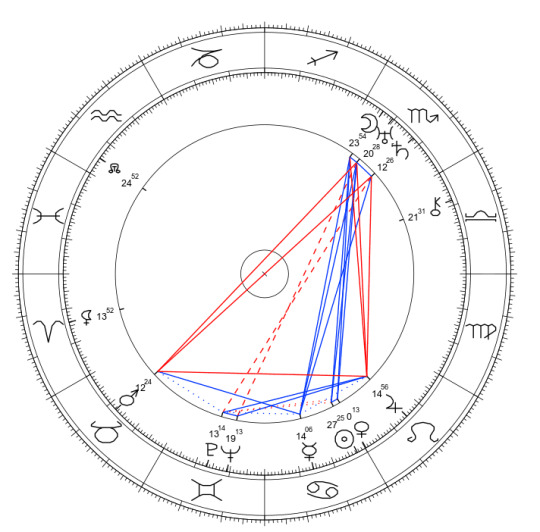
STATS
birthdate: July 19, 1896*
*note*: due to the absence of a birth time, this analysis will be even more speculative
major planets:
Sun: Cancer
Moon: Scorpio
Rising: unknown
Mercury: Cancer
Venus: Leo
Mars: Taurus
Midheaven: unknown
Jupiter: Leo
Saturn: Scorpio
Uranus: Scorpio
Neptune: Gemini
Pluto: Gemini
Overall personality snapshot: He was brooding emotion incarnate, very subjective in his outlook, a trifle overprotective and suspicious, and fully confident that his intellect and perceptive powers would enable him to make rapid progress on the upward path. Tenacious determination to prove himself and secure the dignity and position he felt he merited made him often appear formidable, proud and haughty. But whilst he was capable of going great lengths not only to survive but to win, there really was not an unkind cell in his body. He genuinely cared about his world and the people in it, and his humanity was strong and potent, reaching out to help and transform the darker corners of human existence. If he was part of the establishment he would defend it to the death. If he was an outsider he would attempt to probe into every social assumption and reveal the truth behind the façade, the mysterious behind every commonplace occurrence. The secret and emotional were everything. He loved suspense and mystery, and was drawn to understanding and grappling with the dark side of life, the inordinate and the ugly, in order to see the redeemable, transforming spark of life that lies behind it.
Deeply fascinated by what makes people tick, he had something of the detective and the psychoanalyst in him, which could manifest powerfully in medical or psychological work. But even if he did not have a career, a part of her would always be preoccupied with hidden realities and creatures from ‘inner space’. He guarded his own inner space with great vigilance, and he likewise respected other people’s privacy. He truly came alive, however, when he had been entrusted with a secret or given a search warrant to look inside a troubled mind (or bank account). All his analytical powers became concentrated and uplifted by his reverential, single-minded, determined attitude to discover the truth. He was unafraid of the dark and undaunted by the truth. He worked in a healing profession, and he brought a genuine caring concern and gentle intensity to those ailing in a psychotic underworld. He contributed the love and wisdom of the tender mother together with the exacting discipline of the doctor or policeman. Under his scrutiny and guardianship all his creative projects would have flourished, whatever they may have been. He had the temperament of a fanatic (as do most outstanding artists!) so he needed to try to loosen up a bit and learn to let go.
He had a very good memory and found it easy to learn subjects that interested him. He was very kind and thoughtful towards others. His imagination was very keen, but if it got carried away, he may have experienced irrational fears. Even though he may have tried to maintain a scientific and objective outlook, his mind was actually dominated by his emotions. He was very perceptive, intuitive and compassionate. If he felt threatened or challenged, he tended to withdraw and say little. However, if he was further provoked, he had plenty to say. He used every opportunity he could to show others what he could do. Because he was eager and creative in exploiting his potential, his development and progress was reasonably fast compared to others. Luxury and pleasure attracted him, as did all forms of pomp and ceremony. He could be autocratic at times, but he possessed a genuine desire to please others. One thing that turned him off was when people lacked the strength to stand their ground when they were in the right. He expected a lot from those who are close to him, but he gave a lot too if he felt they were loyal. His attitudes and ideas tended to be on the conservative side, but they were profound and he was able to constructively develop and apply them. He was very serious about everything that gained his attention, although high nervous tension plunged him into periods of depression. His sense of humour tended to be rather black and low-key.
He was part of a generation that was more honest about subjects such as death, sex and the spiritual continuity of life. As such, he wasn’t afraid to ask questions, because he wasn’t afraid of the answers he might received. As a member of this generation, he tended to have an all or nothing personality with powerful emotions seething just below the surface. He was capable of ignoring and suppressing slights and injustices which were bound to eventually resurface. As a member of the Gemini Neptune generation, his restless mind pushed him to explore new intellectual fields. He loved communication and the occult and was likely also fascinated by metaphysical phenomena and astrology. As a Gemini Plutonian, he was mentally restless and willing to examine and change old doctrines, ideas and ways of thinking. As a member of this generation, he showed an enormous amount of mental vitality, originality and perception. Traditional customs and taboos were examined and rejected for newer and more original ways of doing things. As opportunities with education expanded, he questioned more and learned more. As a member of this generation, having more than one occupation at a time would not have been unusual to him.
Love/sex life: He was too demonstrative a lover with too much of an appreciation for drama and display in his love life to keep it completely secret. And, typically, he was having too much fun to care. He was a boisterous, fiery Taurean Martian lover: warm-hearted, generous and profoundly sensual. He had a taste for the unusual in his sexual experiences and bragging rights mattered as much as sensation. The conservative side of his sexual nature often showed itself most in his need for control. Sex lost its appeal for him the minute he felt he was being forced to play by someone else’s rules. There was nothing fancy in his need to control his own sex life. He had no taste for psychological manipulation. He just liked to be the person who said where, when, and how the relationship was going to progress. Even if he wasn’t the person in control, he liked it understood that he could be. Anyone willing to live by these rules found him a very compliant lover.
minor asteroids and points:
North Node: Aquarius
Lilith: Aries
His North Node in Capricorn dictated that he needed to try not to let himself fall in the trap of overemphasizing his own importance. He needed to be able to share with others more readily and to be prepared to see issues from their perspective. His Lilith in Aries ensured that he was dangerously attracted to women who used sex as weapon in their arsenals and weren’t too subtle about it. Hie had a weakness for women whose circumstances forced them into confrontation and having to wave their “freak flags” early on in life, who pioneered frank treatment of sexual desire and took it on and copped the criticism for it.
elemental dominance:
water
fire
He had high sensitivity and elevation through feelings. His heart and his emotions were his driving forces, and he couldn’t do anything on earth if he didn’t feel a strong effective charge. He needed to love in order to understand, and to feel in order to take action, which caused a certain vulnerability which he should (and often did) fight against. He was dynamic and passionate, with strong leadership ability. He generated enormous warmth and vibrancy. He was exciting to be around, because he was genuinely enthusiastic and usually friendly. However, he could either be harnessed into helpful energy or flame up and cause destruction. Confident and opinionated, he was fond of declarative statements such as “I will do this” or “It’s this way.” When out of control—usually because he was bored, or hadn’t been acknowledged—he was bossy, demanding, and even tyrannical. But at his best, his confidence and vision inspired others to conquer new territory in the world, in society, and in themselves.
modality dominance:
fixed
He liked the challenge of managing existing routines with ever more efficiency, rather than starting new enterprises or finding new ways of doing things. He likely had trouble delegating duties and had a very hard time seeing other points of view; he tried to implement the human need to create stability and order in the wake of change.
planet dominants:
Moon
Saturn
Venus
He was defined by his inner world; by his emotional reactions to situations, how emotions flowed through him, motivating and compelling him—or limiting him and holding his back. He held great capacity to become a part of the whole rather than attempting to master the parts. He wanted to become whatever it is that he sought. He believed in the fact that lessons in life were sometimes harsh, that structure and foundation was a great issue in his life, and he had to be taught through through experience what he needed in order to grow. He paid attention to limitations he had and had to learn the rules of the game in this physical reality. He tended to have a practical, prudent outlook. He also likely held rigid beliefs. He was romantic, attractive and valued beauty, had an artistic instinct, and was sociable. He had an easy ability to create close personal relationships, for better or worse, and to form business partnerships.
sign dominants:
Scorpio
Aries
Cancer
He was an intense, passionate, and strong-willed person. He was not above imposing his will on others. This could manifest in him as cruelty, sadism, and enmity, which had the possibility to make him supremely disliked. He needed to explore his world through his emotions. He was a physically oriented individual who took pride in his body. He was bold, courageous, and resourceful. He always seemed to know what he believed, what he wanted from life, and where he was going. He could be dynamic and aggressive (sometimes, to a fault) in pursuing his goals—whatever they might be. Could be argumentative, lacked tact, and had a bad temper. On the other hand, his anger rarely lasted long, and he could be warm and loving with those he cared about. At first meeting, he seemed enigmatic, elusive. He needed roots, a place or even a state of mind that she could call her own. He needed a safe harbour, a refuge in which to retreat for solitude. He was generally gentle and kind, unless he was hurt. Then he could become vindictive and sharp-spoken. He was affectionate, passionate, and even possessive at times. He was intuitive and was perhaps even psychic. Experience flowed through him emotionally. He was often moody and always changeable; his interests and social circles shifted constantly. He was emotion distilled into its purest form.
Read more about him under the cut:
Juano Hernandez was born in Puerto Rico, son of a Puerto Rican father and Brazilian mother. Hernandez's first talking pictures were "race films" produced by Oscar Micheaux. His first speaking part was in Micheaux's "The Girl From Chicago," a 1932 talkie. He became well-known as a radio performer, and also acted on Broadway. His breakthrough role was "Intruder In The Dust" (1940), directed by Clarence Brown from the novel by William Faulkner. As a poor farmer unjustly accused of the murder of a white man, Hernandez was nominated for both Golden Globe and New York City Film Critics awards. Bosley Crowther called it "one of the great cinema dramas of our times". As for Hernandez's performance, Crowther wrote: "The staunch and magnificent integrity that Mr. Hernandez displays in his carriage, his manner and expression, with never a flinch in his great self-command, is the bulwark of all the deep compassion and ironic comment in this film." His later performances were often singled out for praise, including "Breaking Point" (1950), starring John Garfield, and Sidney Lumet's "The Pawnbroker" (1965). In 1957, Hernandez was billed above Sidney Poitier in "Something of Value" (1957), a drama about the Mau Mau uprising against white settlers in East Africa. Hernandez also made frequent appearances on television. In later years he returned to his native Puerto Rico, but continued to make American films. His last role was supporting Sidney Poitier in "They Call Me Mister Tibbs!" He died of a cerebral hemorrhage, two days before his 74th birthday. (x)
7 notes
·
View notes
Photo
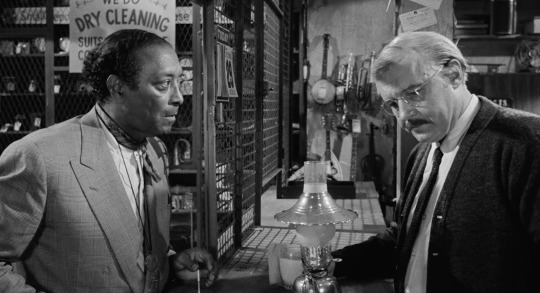
The Pawnbroker | Sidney Lumet | 1964
Juano Hernandez, Rod Steiger
12 notes
·
View notes
Text
The Legacy of INTRUDER IN THE DUST (’49) By Jessica Pickens

When Juano Hernandez is on screen, your eyes are on him. The Afro-Puerto Rican actor has a commanding presence, and the characters he portrayed are memorable long after the film ends. “He also has one of the great faces ever in films,” said the late Robert Osborne, former Turner Classic Movies host and historian. “Once you see him, you never forget him.”
Hernandez’s first credited film role came in 1932, but it was in 1949 when he had his breakout role with INTRUDER IN THE DUST, his first film with a major Hollywood studio. In the 1930s, Hernandez primarily starred in “race films” produced between 1914 and the 1950s outside of major Hollywood studios and starring all-Black casts for segregated audiences. From 1932 to 1940, Hernandez starred in four race films, some of which were directed by Oscar Micheaux. INTRUDER IN THE DUST was his first film in nine years.
INTRUDER IN THE DUST is a film adaptation of William Faulkner’s 1948 novel. Hernandez plays Lucas Beauchamp, a Black man accused of shooting a white man in the back in a small southern town. Lucas looks to a white teenager, Chick Mallison, played by Claude Jarman Jr., for help. Lucas says Chick is still uncluttered of the notions older white men have. Chick, his friend Aleck and elderly Miss Eunice Habersham help discover what really happened.

Released by MGM, INTRUDER IN THE DUST is a captivating film disguised as a whodunit crime drama, and it explores racism in a small town. As the confident Lucas, Hernandez walks proudly through the town wearing a long dark coat, black hat and toothpick hanging from his mouth. Historian Donald Bogle calls Hernandez’s Lucas “one of the strongest Black male characters you will see in Hollywood movies, up to that time.”
Lucas is proud and won’t act subservient. He initially angers Chick because Lucas treats him like an equal. But Lucas also asks Chick to help him and to convince his uncle John (David Brian) to act as his lawyer. Reluctant to take the case, John says, “Has it ever occurred to you if you just said ‘mister’ to white people and said it like you meant it, you might not be sitting here now?” Lucas replies from his jail cell, “So I’m to commence now? I can start off by saying ‘mister’ to the folks that drags me out of here and builds a fire under me?”
During an interview with Robert Osborne, Bogle said, “It is a highly distinctive character. The character is proud and there is a kind of defiance he has. He has so much pride that he doesn’t care to prove anything to the whites in his community. He becomes a focal point for them, because he’s a Black man who will not play the role of one of their subservient figures.”

White characters in INTRUDER IN THE DUST view Lucas as haughty, and MGM studio heads felt similarly about the character. According to producer Dore Schary’s autobiography, Mayer felt that Hernandez’s character was “too uppity.” Mayer also complained that “He ought to take off his hat when he talks to a white man” and “he didn’t even say thank you to the lawyer.” Mayer wasn’t keen on veteran director Clarence Brown’s project , but Schary championed it. This was a departure for Brown from the ultra-glamourous, glittering films that Metro-Goldwyn-Mayer was known for.
INTRUDER IN THE DUST was filmed on location in segregated Oxford, Mississippi. The racism Lucas experiences onscreen was similar to what Hernandez experienced while making the film. Hernandez and the other Black actors had to live in a separate area from the rest of the cast. Hernandez stayed with a local undertaker, according to a 1949 New York Times article. While author William Faulkner coached Puerto Rican-born Hernandez with his southern accent and appreciated his performance, Faulkner did not invite Hernandez to dinner at his home, Rowan Oak, with the rest of the cast and crew. Hernandez also refused to go into any Oxford businesses that required only Black patrons to remove their hats when they entered.
Initially, the cast and crew were viewed with skepticism, because of the topic of the film. In order to be more welcome in the town, Clarence Brown had to charm the people of Oxford, cast some as extras and champion the economic development the picture would bring, according to Brown’s biographer Gwenda Young.
INTRUDER IN THE DUST was one of four movies dealing with racism released in 1949, but it was still unusual to highlight the issue in American films during this time. “Messages against racism were virtually nonexistent in 1940s Hollywood,” Claude Jarman Jr. wrote in his autobiography. “… [The film] may seem like a primitive step today, but in a time when racist attitudes were prevalent, making a movie of INTRUDER IN THE DUST was akin to taking a first step on the moon.”

To be sensitive towards the topic of racism, Schary consulted NAACP president Walter White, who praised the script but warned against the use of derogatory racial slurs used by some of the characters. The final product was an intriguing film with stunning cinematography by Robert Surtees and deft direction by Brown. Unfortunately, Mayer didn’t promote INTRUDER IN THE DUST, and Brown discovered race “problem pictures” were doing poorly in the box office, according to his biographer.
“L.B. predicted the film would be a dismal flop at the box office. I predicted it would be viewed in years to come as one of the best. We were both right,” Schary wrote in his autobiography. Critics provided mixed reviews, with southern critics largely praising the film while ignoring the racial issue.
However, Black author and critic Ralph Ellison championed it for its depiction of a Black man with courage, pride, independence and patience “that are usually attributed only to white men.” Comparing it to the other race relations films released that year, Ellison said, “It’s the only film that could be shown in Harlem without arousing unintended laughter, for it is the only one of the four in which Negroes can make complete identification with their screen image."
#Juano Hernandez#1949#problem pictures#Hollywood Black#race in hollywood#racism#anti-racism#TCM#Turner Classic Movies#race movies#Jessica Pickens
83 notes
·
View notes